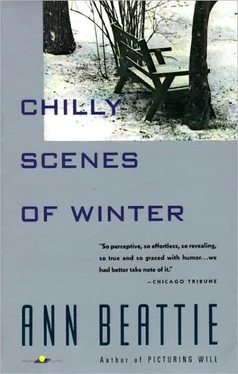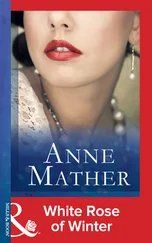Ann Beattie - Chilly Scenes of Winter
Здесь есть возможность читать онлайн «Ann Beattie - Chilly Scenes of Winter» весь текст электронной книги совершенно бесплатно (целиком полную версию без сокращений). В некоторых случаях можно слушать аудио, скачать через торрент в формате fb2 и присутствует краткое содержание. Год выпуска: 1991, Издательство: Vintage, Жанр: Современная проза, на английском языке. Описание произведения, (предисловие) а так же отзывы посетителей доступны на портале библиотеки ЛибКат.
- Название:Chilly Scenes of Winter
- Автор:
- Издательство:Vintage
- Жанр:
- Год:1991
- ISBN:нет данных
- Рейтинг книги:5 / 5. Голосов: 1
-
Избранное:Добавить в избранное
- Отзывы:
-
Ваша оценка:
- 100
- 1
- 2
- 3
- 4
- 5
Chilly Scenes of Winter: краткое содержание, описание и аннотация
Предлагаем к чтению аннотацию, описание, краткое содержание или предисловие (зависит от того, что написал сам автор книги «Chilly Scenes of Winter»). Если вы не нашли необходимую информацию о книге — напишите в комментариях, мы постараемся отыскать её.
Chilly Scenes of Winter — читать онлайн бесплатно полную книгу (весь текст) целиком
Ниже представлен текст книги, разбитый по страницам. Система сохранения места последней прочитанной страницы, позволяет с удобством читать онлайн бесплатно книгу «Chilly Scenes of Winter», без необходимости каждый раз заново искать на чём Вы остановились. Поставьте закладку, и сможете в любой момент перейти на страницу, на которой закончили чтение.
Интервал:
Закладка:
“Whew,” Charles says. “Take a look at this, or did you already get one?”
Carolyn works at the store with Sam. Once he and Charles had dinner at their apartment. That was at least a year ago. How did they get his address?
“What do you make of that?” Charles says.
“I’m reading,” Sam says.
“What is it?” Susan says.
“A crazy letter sort of thing from Sam’s friends.”
“Good God,” Sam says, reading. “We went over there for dinner one time. Remember?”
“Good God,” Sam says, tossing it back to Charles. “Isn’t anybody happy? Or even sane?”
“Everybody’s not crazy,” Susan says. “You two are depressed all the time.”
“You’d be depressed too if you felt like I do,” Sam says.
“That’s not what I mean. I mean all the time.”
“You’re not here all the time. How do you know?”
Susan sighs, goes into the kitchen.
“I’m too depressed to apply my usual trenchant wit,” Sam says.
“I wasn’t depressed until she started in,” Charles says.
The phone rings. It is Pete, sounding very drunk.
“You don’t want to hear any more from me tonight, do you?” Pete says. He does not say “Hello.”
“Hello,” Charles says, stalling for time.
“ ‘Hello?’ ” Pete says. “I said hello. Now I’ve got to know the answer to my question.”
“Pete, you profess to love her. You’re not going to do her any good going out and getting juiced the night before she comes home.”
“Don’t criticize me,” Pete says. “Just answer my question.”
“You asked if I was glad to hear from you, didn’t you? I was, Pete, until it turned out that you were drunk.”
“In my day a youngster would never never speak to an old man that way.”
“Pete, you’re not an old man. Try to cheer up. She’s coming home tomorrow and it might work out this time.”
“I’ve got one thing to tell you,” Pete says. “I found the pillow. Do you know where I found it? In the attic. Some birds had gotten into it. It will never, never work out.”
“Pete, maybe some friend of yours not so close to the problem could advise you better than I can. I don’t really know what to say.”
“What did you say was the worst thing I ever did to you again? I’ve forgotten.”
“Pete, you’re drunk. Where are you?”
“I’m at home. Where do you think my attic is?”
“I’m glad to hear that, because the driving is very dangerous. You’re just drinking at home?”
“If I went nuts,” Pete says, “I wouldn’t have anybody to take care of me. My brother came from Hawaii. Now where is he? Running around an orchid patch. Eating macadamia nuts. I don’t know. I don’t have anybody but myself to depend on.”
“Would you like me to come over?” Charles says.
“That’s very decent of you. But I don’t want you to come.”
“Okay. I hope things go okay tomorrow. Take it easy, Pete.”
“Are there any old people you like a lot?” Pete asks.
Charles does not know any old people. “No,” he says.
“So what you’re saying is that it’s nothing personal,” Pete says. “I’m glad to hear that. You’re a very honest young fellow. Now tell me honestly, Charles, what was it you said was the worst thing I ever did to you?”
“In the bar I told you about the time Susan made the snowman with your wood. You never really did one particularly rotten thing to me, Pete. I don’t hate you, and I never did. I’m not too close to you. That’s all. You never paid any attention to Susan or me. We never talked. How can you expect us to talk now?”
“You mean that if I had a boy he’d talk to me the same way?” Pete says. “My own boy would shoot straight from the hip, too?”
“That’s just an assumption I make, Pete. I don’t know very many people my age who don’t have trouble talking to their parents.”
“That’s kind of you to say,” Pete says. “You mean to console me, don’t you?”
“Yeah,” Charles says. He sits in the chair, figuring he’s in for a long talk. Pete hangs up.
“Pete? Hello?”
Charles puts the phone down, shakes his head, goes back to the living room. The phone rings again immediately.
“He’s not making a monkey of me,” Charles says.
Susan gets up.
“I’m not going to talk to him again,” Charles says. It is Doctor Mark, who will be there within the hour.
Sam sighs and goes to bed. Charles sits beside Susan on the sofa and stares across the room. There are tiny cracks in the wall. Fitting, fitting. He takes off his shoes, puts his feet under him. It is cold in the house. Is it less cold or more cold in Laura’s A-frame? Susan files a fingernail. Charles looks through the rest of the mail: a fuel oil bill for $6441, a letter from the Audubon Society, telling him that animals are dying. He can buy a set of “endangered species” glasses, or salt and pepper shakers with cardinals on them. A letter from the Humane Society, telling him that people throw their kittens in trash cans, etc., and asking for money. An overdue notice for The French Lieutenant’s Woman . It is eleven o’clock. In nine and a half hours he will be sitting at his desk. He wishes he could work at night when nobody was there. He asked his boss about that, and his boss said, “You’re lucky I don’t say anything about your taking off for lunch at five of eleven.” “I only take an hour for lunch,” Charles said. “You can’t work at night,” his boss said. One night his boss asked him if he wanted to be in a poker game “over the line.” Charles said he didn’t know how to play poker. His boss thinks that he is hopelessly dumb. Not the quality of his work, but the personal things he has found out about him: ready for lunch at eleven, wants to work at night, can’t play poker, has a boxwood plant in his window. “What’s the story on that?” his boss said, pointing to the little white plastic container with the little green bush in it. “I bought it in the supermarket,” Charles said. Charles didn’t think he was being evasive. Behind his back, his boss tells people that he is evasive even about small things.
In five years he has had two promotions. He is probably going to get a third promotion. After the first promotion he moved into a different building, the building he is in now and the building he will stay in, even if he gets the third promotion. He has always requisitioned an unusually large number of U. S. Government pens and boxes of paper clips, which he gives away: a box to Susan at school, a box for his mother (“These might come in handy by the telephone”); he even gave Laura a box once, and that was crazy, because she could have requisitioned a box if she had wanted them. When he began working there everyone wore a jacket and tie. Now nobody does. He has a jacket hanging on the coatrack in his office just in case, but he has never had to put it on except for a few days in the summer when the air conditioning got so cold that he needed it. When he heard that he might be getting another promotion he had a nightmare in which his secretary — he would have a secretary if he got the promotion — came into his office and he said to her, “Take a letter. Any letter.” Then he laughed wildly. The woman stood there. In the dream she had been a short, brown-haired woman, not as old as he might have feared. His first building wasn’t bad. It was a ten-story brown brick building, and he walked up to his office on the fifth floor every day to keep in shape. Now he works in a mud-colored glass building and only walks to his office on the twenty-first floor once a week, on Friday. One Friday, walking up, his cassette player going, he saw an employee flatten himself against the wall, wide-eyed, frightened, obviously, of what might have been coming for him. The employee had acted very strangely. It was about the sixteenth or seventeenth floor and Charles was very winded, so he just lifted his hand in greeting. The employee ran under his arm, like an animal running out a gate. There were a lot of nervous people in the building, and it always seemed to him that quite a number of women coming out of the rest room looked as if they had been crying. Laura said that wasn’t so; she had never seen a woman crying in the rest room. He was always surprised that so many people in the employees’ cafeteria kept their plates on the wet brown tray. He always took the dishes off and put the tray in the rack, but most of the people ate right from the tray.
Читать дальшеИнтервал:
Закладка:
Похожие книги на «Chilly Scenes of Winter»
Представляем Вашему вниманию похожие книги на «Chilly Scenes of Winter» списком для выбора. Мы отобрали схожую по названию и смыслу литературу в надежде предоставить читателям больше вариантов отыскать новые, интересные, ещё непрочитанные произведения.
Обсуждение, отзывы о книге «Chilly Scenes of Winter» и просто собственные мнения читателей. Оставьте ваши комментарии, напишите, что Вы думаете о произведении, его смысле или главных героях. Укажите что конкретно понравилось, а что нет, и почему Вы так считаете.












